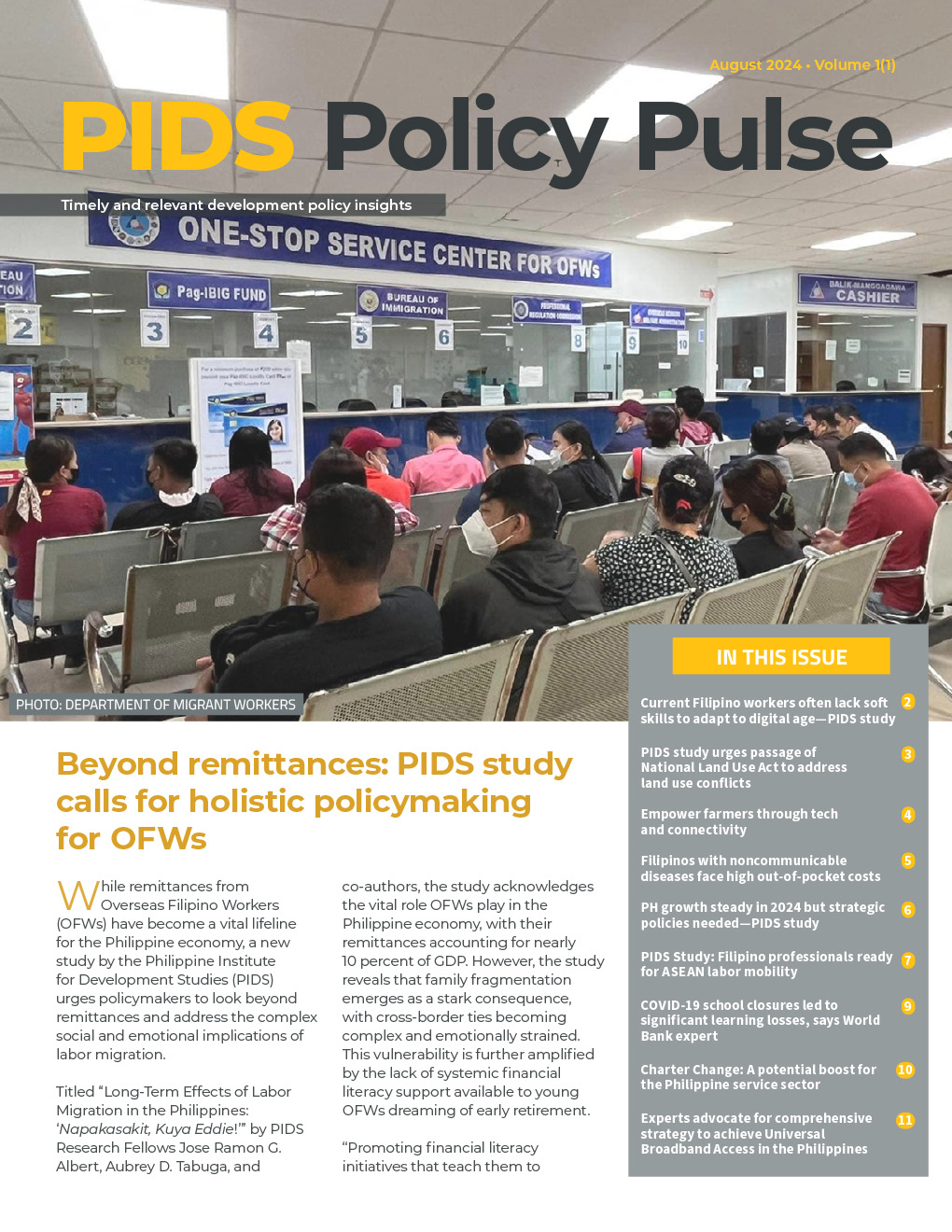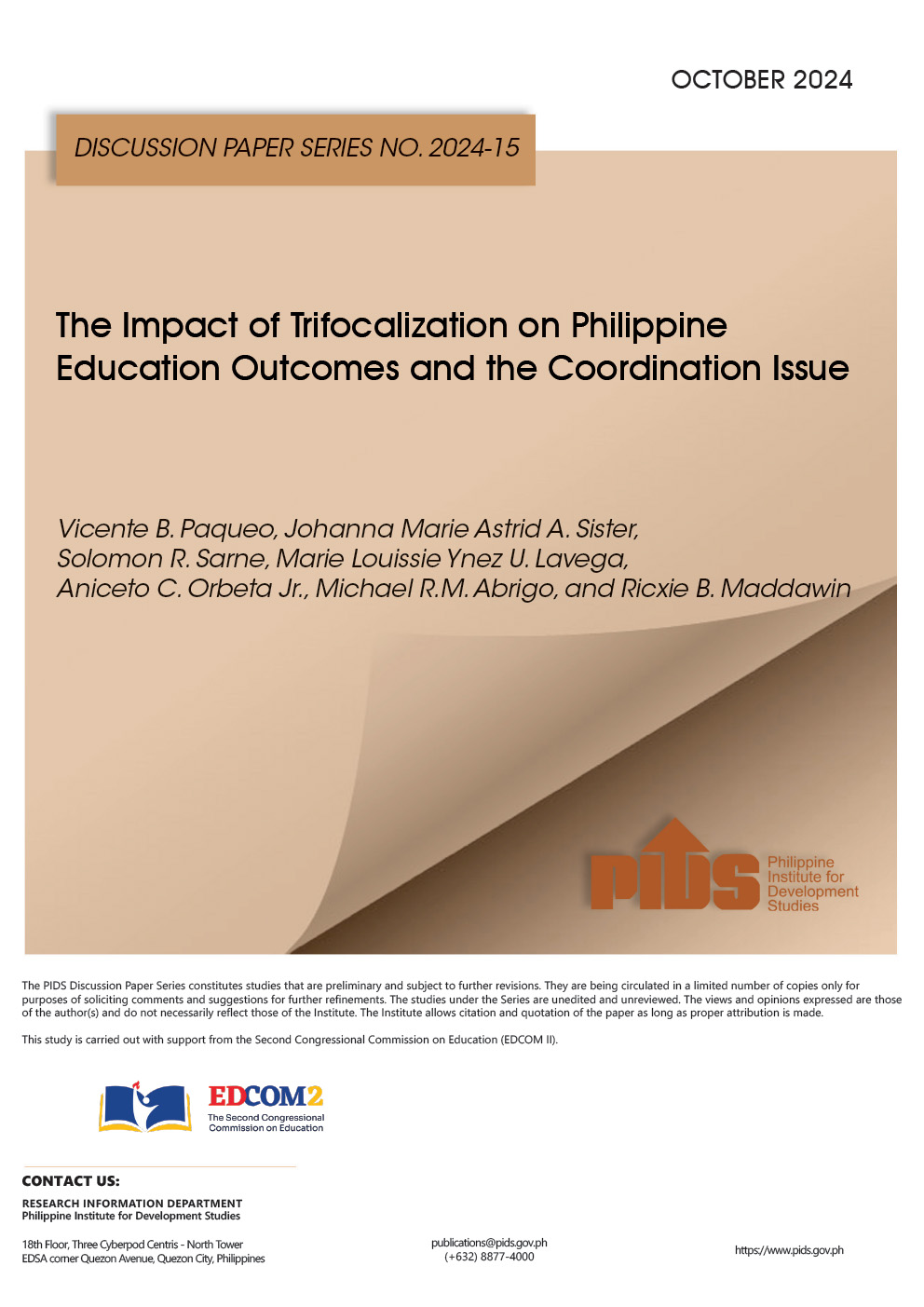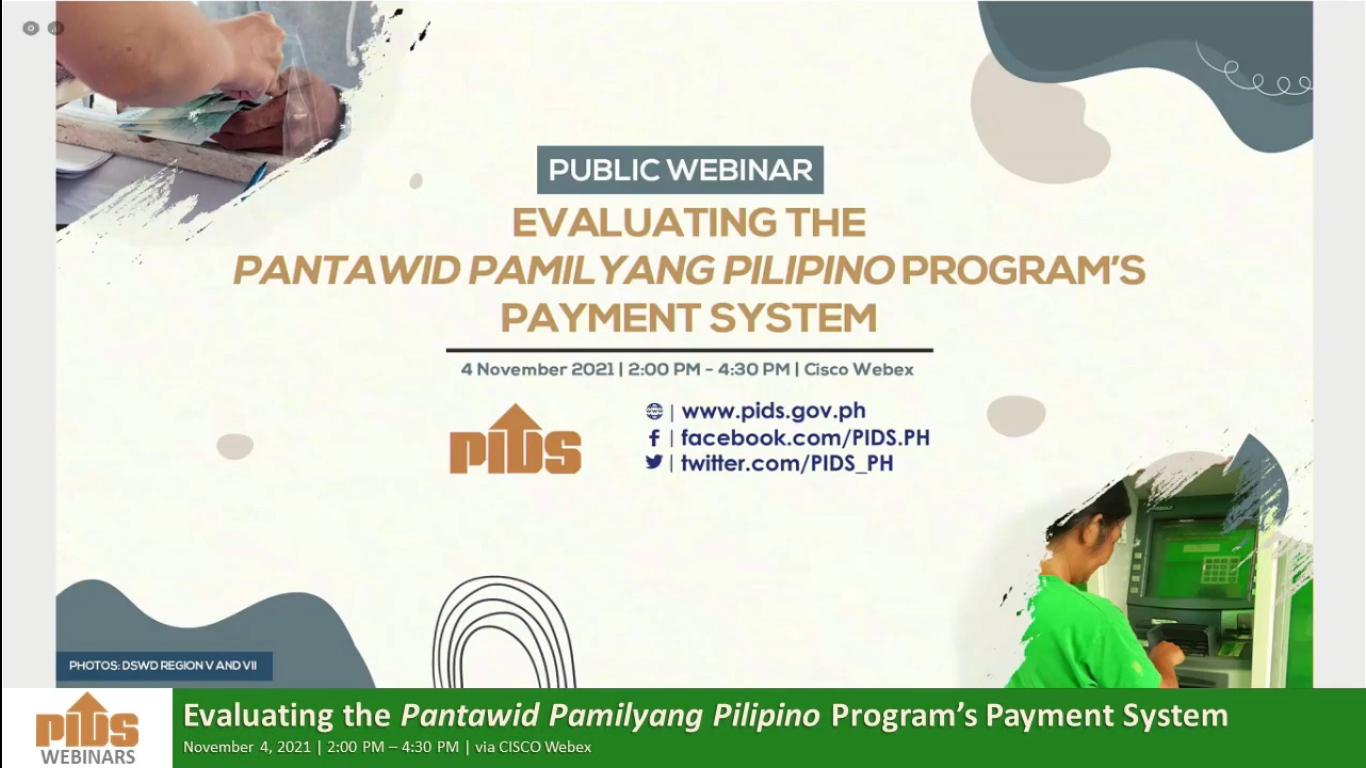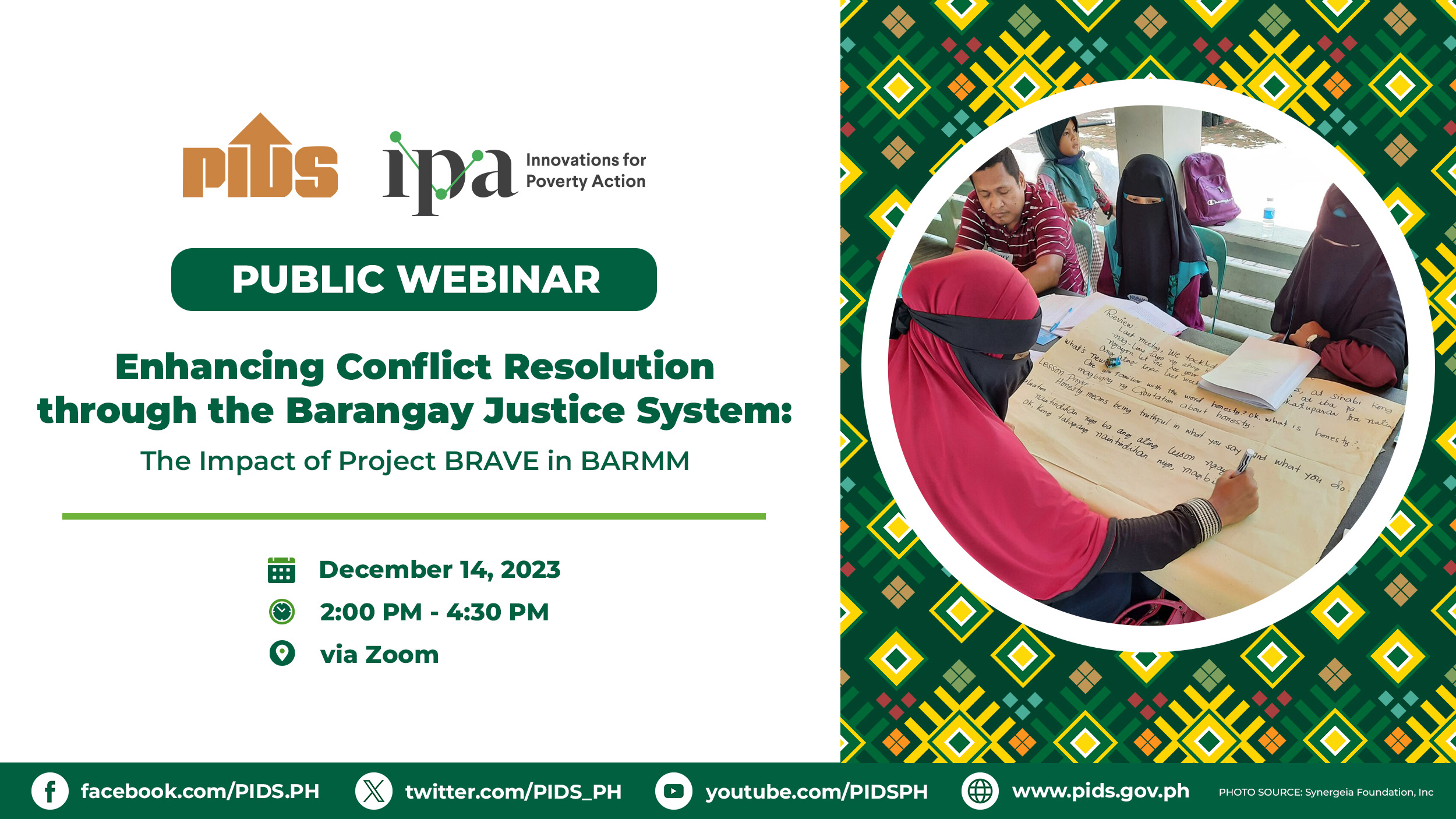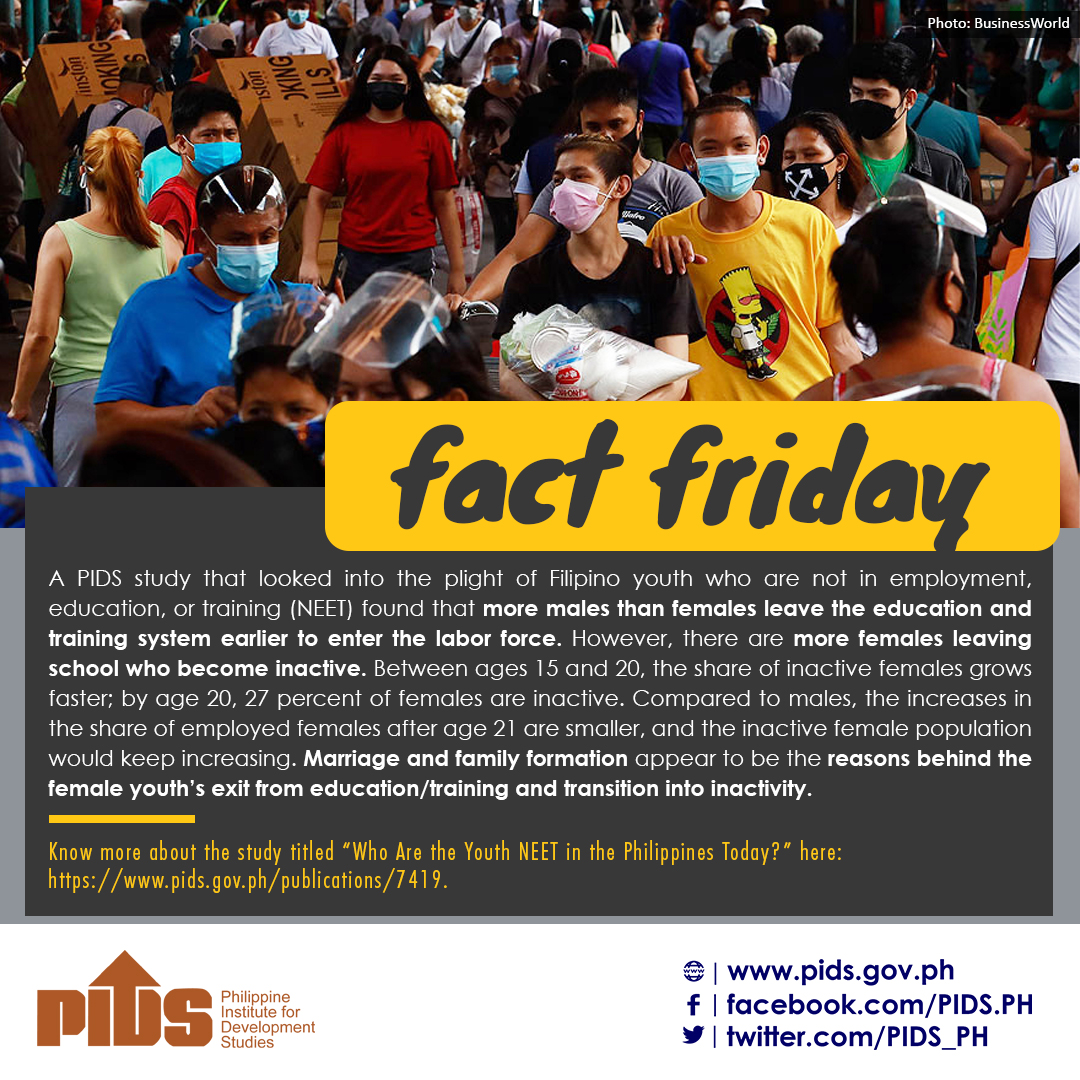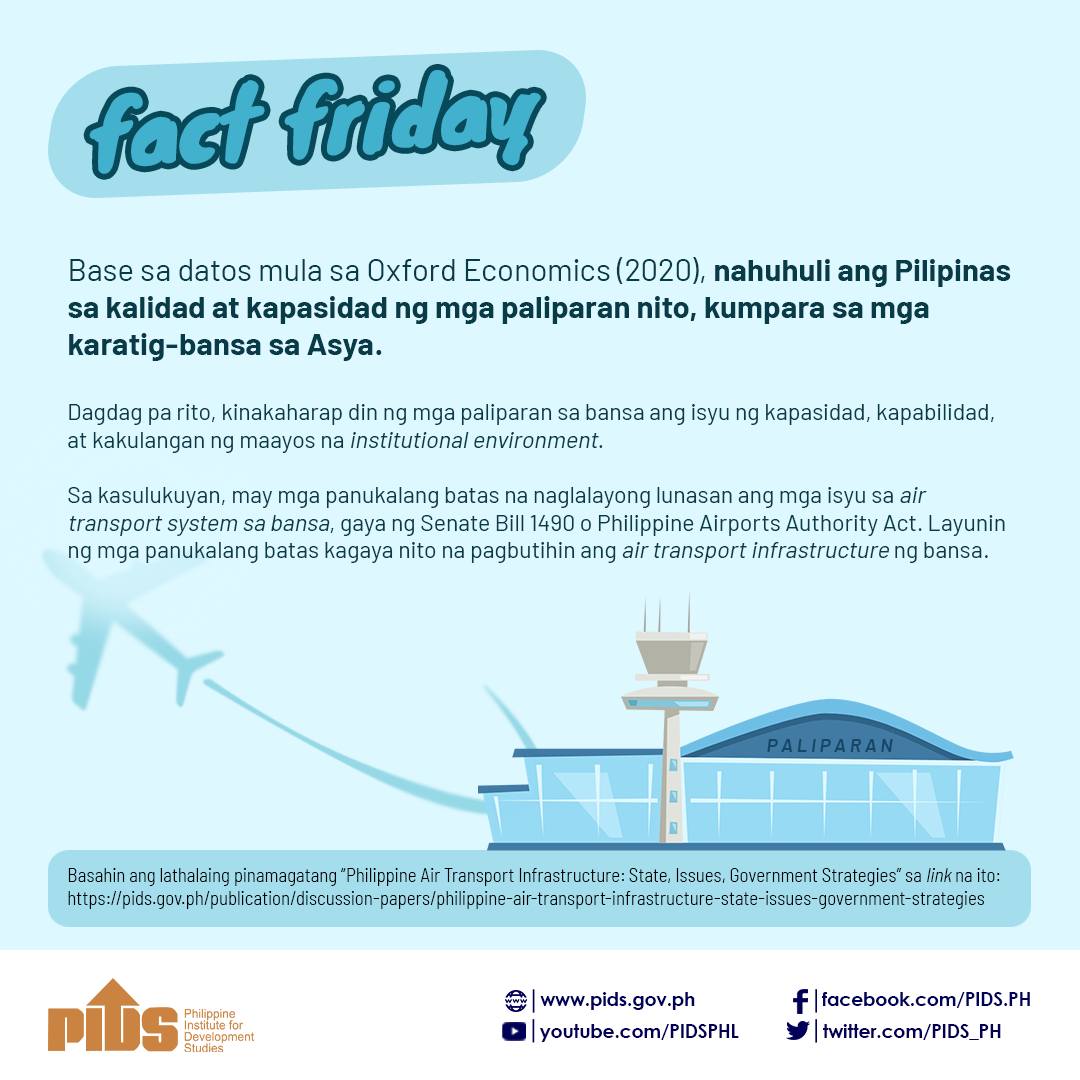MANILA -- State think-tank Philippine Institute for Development Studies (PIDS) on Tuesday urged policymakers to undertake a comprehensive study of the proposed shift to a federal form of government which could address uneven developments in provinces and regions.
“It’s not self-evident that federalism can work for us. It must be carefully studied. What we are doing here is to pool as many ideas as we can. But ultimately, it depends on the political leadership,” PIDS President Gilberto Llanto told reporters on the sidelines of PIDS’ public policy conference.
Llanto cited the issue of regional imbalance, wherein the development of one region is not at par with those of other regions.
“The revenues being collected nationwide is distributed according to a formula that does not seem to favor the poorer regions. In the federal system, states will have better control of resources. They can control how they can discharge the responsibilities,” he said.
Llanto noted another view that the country could address issues of regional imbalance, poverty and other social ills by revisiting the local government code.
“By looking at the weaknesses of the code then overhaul and amend because there are certain provisions in the code that can be strengthened. So those are two opposing views,” he added.
Llanto pointed there is no appropriate model for the country to effect the shift to a federal form of government.
"We have to discover it as a people, meaning think along certain principles. But as to how you translate these to actual political structures, will depend on the political process,” he said.
“Designing it is the big issue. It’s a matter of maturing the institutions here in the Philippines. This will only take off if we have this,” he added.
On her part, Dr. Rosemarie Edillon, Undersecretary for National Development Policy and Planning of the National Economic and Development Authority (NEDA), said a federal form of government should be the country’s “long term endeavor.
“It could really lead to benefits if we are able to manage the transition costs. Supposedly (it will help reduce poverty and achieve inclusive growth) because we will have many, many more centers of economic activities, supposedly per state,” she added.
PIDS senior research fellow Dr. Rosario Manasan estimated transition costs at PHP30 billion to PHP59 billion, depending on number of states, size of legislative body at state government level and size of the second chamber.
Lawyer Salma Pir Rasul, director of Islamic Law Studies at the University of the Philippines Law Center, believes that it was imperative for the country to shift to a federal form of government.
“Based on current dynamics of Philippine society, will I consider federalism? Yes, because where I’m from which is the Autonomous Region, we really need to be given the authority to determine issues by ourselves,” she said during the forum.
Dr. Herwig Mayer, economist for Deutsche Gesellschaft für Internationale Zusammenarbeit (GIZ), said federalism can be implemented in different ways.
“Meaning that for example, those who are prepared and who want to go can go, and those who are not willing or who want to maintain with the rest together can do so,” he said. (PNA)
“It’s not self-evident that federalism can work for us. It must be carefully studied. What we are doing here is to pool as many ideas as we can. But ultimately, it depends on the political leadership,” PIDS President Gilberto Llanto told reporters on the sidelines of PIDS’ public policy conference.
Llanto cited the issue of regional imbalance, wherein the development of one region is not at par with those of other regions.
“The revenues being collected nationwide is distributed according to a formula that does not seem to favor the poorer regions. In the federal system, states will have better control of resources. They can control how they can discharge the responsibilities,” he said.
Llanto noted another view that the country could address issues of regional imbalance, poverty and other social ills by revisiting the local government code.
“By looking at the weaknesses of the code then overhaul and amend because there are certain provisions in the code that can be strengthened. So those are two opposing views,” he added.
Llanto pointed there is no appropriate model for the country to effect the shift to a federal form of government.
"We have to discover it as a people, meaning think along certain principles. But as to how you translate these to actual political structures, will depend on the political process,” he said.
“Designing it is the big issue. It’s a matter of maturing the institutions here in the Philippines. This will only take off if we have this,” he added.
On her part, Dr. Rosemarie Edillon, Undersecretary for National Development Policy and Planning of the National Economic and Development Authority (NEDA), said a federal form of government should be the country’s “long term endeavor.
“It could really lead to benefits if we are able to manage the transition costs. Supposedly (it will help reduce poverty and achieve inclusive growth) because we will have many, many more centers of economic activities, supposedly per state,” she added.
PIDS senior research fellow Dr. Rosario Manasan estimated transition costs at PHP30 billion to PHP59 billion, depending on number of states, size of legislative body at state government level and size of the second chamber.
Lawyer Salma Pir Rasul, director of Islamic Law Studies at the University of the Philippines Law Center, believes that it was imperative for the country to shift to a federal form of government.
“Based on current dynamics of Philippine society, will I consider federalism? Yes, because where I’m from which is the Autonomous Region, we really need to be given the authority to determine issues by ourselves,” she said during the forum.
Dr. Herwig Mayer, economist for Deutsche Gesellschaft für Internationale Zusammenarbeit (GIZ), said federalism can be implemented in different ways.
“Meaning that for example, those who are prepared and who want to go can go, and those who are not willing or who want to maintain with the rest together can do so,” he said. (PNA)

